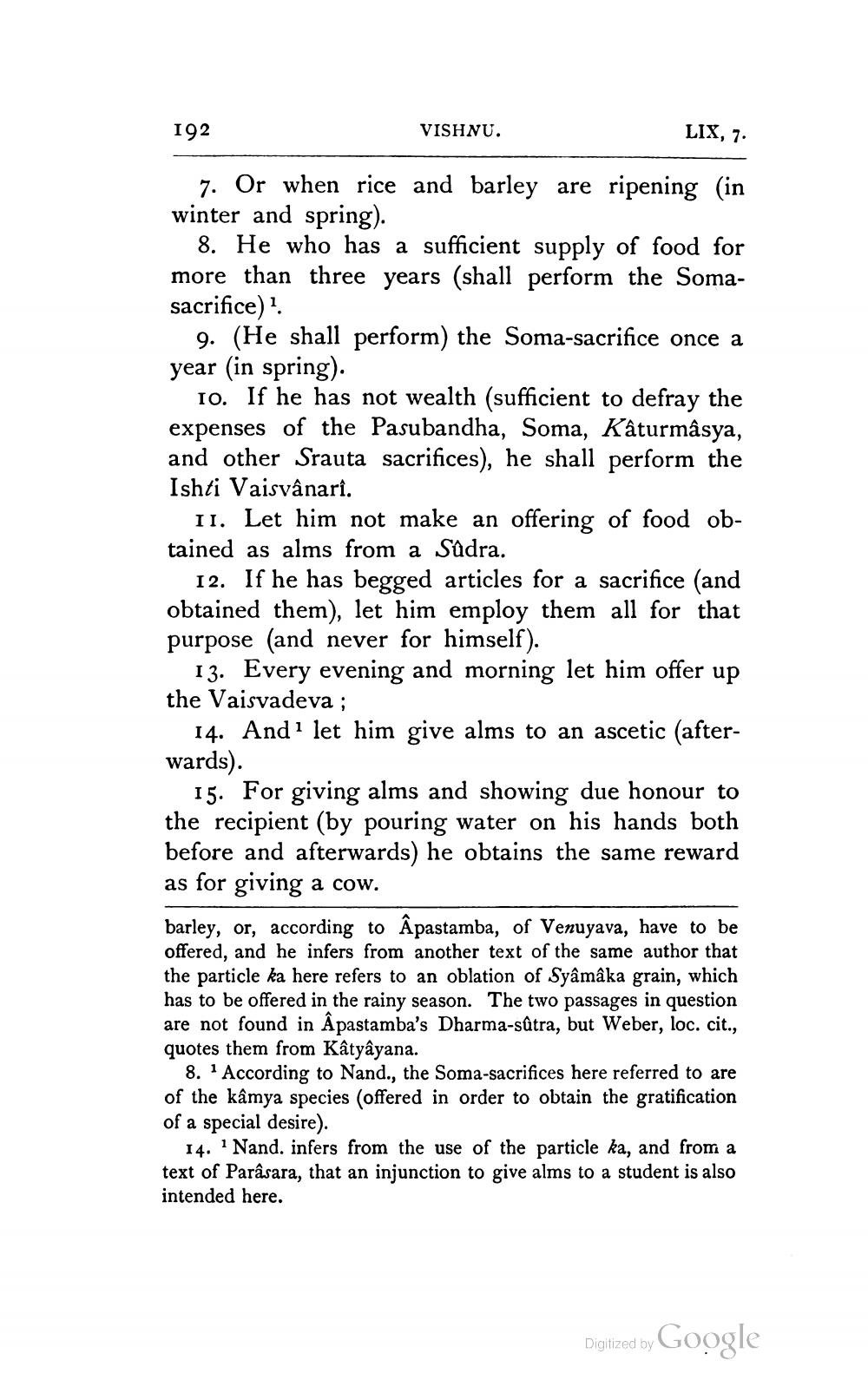________________
192
VISHNU.
LIX, 7.
7. Or when rice and barley are ripening (in winter and spring).
8. He who has a sufficient supply of food for more than three years (shall perform the Somasacrifice)
9. (He shall perform) the Soma-sacrifice once a year (in spring).
10. If he has not wealth (sufficient to defray the expenses of the Pasubandha, Soma, Kâturmâsya, and other Srauta sacrifices), he shall perform the Ishti Vaisvânarî.
11. Let him not make an offering of food obtained as alms from a Sudra.
12. If he has begged articles for a sacrifice (and obtained them), let him employ them all for that purpose (and never for himself).
13. Every evening and morning let him offer up the Vaisvadeva;
14. And 1 let him give alms to an ascetic (afterwards).
15. For giving alms and showing due honour to the recipient (by pouring water on his hands both before and afterwards) he obtains the same reward as for giving a cow. barley, or, according to Âpastamba, of Venuyava, have to be offered, and he infers from another text of the same author that the particle ka here refers to an oblation of Syâmâka grain, which has to be offered in the rainy season. The two passages in question are not found in Apastamba's Dharma-sûtra, but Weber, loc. cit., quotes them from Kâtyâyana.
8. 1 According to Nand., the Soma-sacrifices here referred to are of the kâmya species (offered in order to obtain the gratification of a special desire).
14. 1 Nand. infers from the use of the particle ka, and from a text of Parâsara, that an injunction to give alms to a student is also intended here.
Digitized by Google




